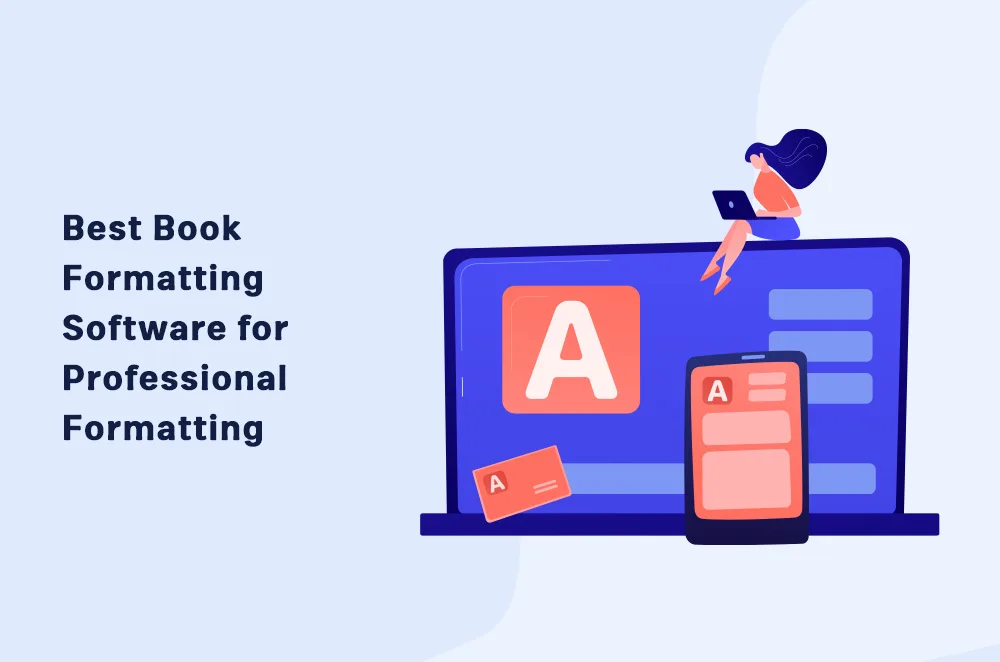You’ve probably tried—or at least considered—using AI writing tools. Some might save you hours, while others can leave your writing feeling more robotic than human.
AI companies are moving fast, and most are designed with specific audiences in mind—technical writers, marketers, fiction authors, and more. Even though my day job is in technical writing, fiction has always been where my creativity lives. The heart behind Squibler is creative writing—it was built with fiction writers in mind.
Still, you might not be here to write a novel. You may be looking for tools that help with essays or want a solid free AI writing assistant for general content.
That’s exactly why this guide lists the top 11 AI writing tools worth your time. Whether you’re outlining a book, fine-tuning an email, or managing blog content, there’s something here to make your writing easier.
Let’s look at what makes each tool stand out, what to watch out for, and how they fit different writing needs.
1. Squibler

If you’re writing a novel, screenplay, or anything long-form, Squibler is a great tool. Yeah, it’s our tool, but it is the best AI writer solution for creative writing.
Few offer the kind of structure and creative support Squibler builds right in. It’s not just another AI writing assistant—it’s a complete workspace designed to help you organize ideas, create narratives, and finish what you start.
Pros
Smart Writer: This feature gives you real-time help as you write. It’s great when you’re stuck on a scene, need help rewording sentences, or want to speed up your drafting process without losing your voice.
Generate Scene Tool: This is a game-changer for fiction writers. Just input your characters and elements, then ask the AI to craft dialogue or narrative based on those inputs. It’s like having a co-author who understands your story.
Versatile Project Types: Squibler adjusts to fit your format. You can also use it to map out content strategy for a long blog series.
Organizational Tools: Plot timelines, storyboards, note cards—everything’s designed to keep your ideas tidy and easy to navigate. It’s perfect for complex stories or multi-part content.
Cons
Because it has so many features, there’s a bit of a learning curve. But once you get the hang of it, that depth becomes a strength.
Joining the Discord community helps master the tool (the community is also good for brainstorming ideas).
Best For
Writers who are serious about storytelling—whether you’re a novelist, screenwriter, or someone building out serialized content. If structure and creativity matter to you, Squibler gives you room to do both well.
Pricing
Free Plan: Yes
Premium Plan: Starts at $16/month for access to all writing features, free live online training, and a free physical copy of your first book.
2. Jasper

Jasper, launched initially as Jarvis, is one of the more established players in the AI writing space. Over time, it has evolved into a great platform geared toward marketing teams and business writing.
Pros
The tool centers around helping teams maintain brand consistency across various content types—blog posts, ads, social media copy, or landing pages. Jasper offers a range of templates that guide users through marketing content creation.
Of all AI features, one that stands out is Jasper’s Brand Voice system. It allows marketing teams to input tone guidelines, style references, and preferred phrasing. This makes aligning content with company messaging easier across multiple writers and departments.
Jasper’s Chat and Remix tools are also worth noting. Chat offers conversational idea generation and content brainstorming. Furthermore, Remix allows users to upload existing content and rework it using Jasper’s AI suggestions.
Cons
The tool focuses on marketing, so it’s not ideal for fiction or long-form storytelling.
Most of its value comes from brand and team-based features—solo users may find more cost-effective options elsewhere.
Ideal For
Marketing teams and agencies that require scalable workflows, content consistency, and collaborative tools in one centralized platform.
Pricing
Free Trial: 7-day trial
Creator Plan: Starts at $39/month
Pro Plan: Starts at $59/month (includes collaboration and brand voice tools)
3. Grammarly

Grammarly has been around for a long time, and many writers have it in their toolset since it fits almost all writing purposes.
With that in mind,Grammarly isn’t a traditional AI writing tool but plays a big role in the workflow. It improves clarity, correctness, and tone across various writing tasks—making it a reliable assistant.
Pros
At its core, Grammarly offers real-time grammar and style suggestions, checking for spelling errors, sentence structure, punctuation, and readability. It also provides tone detection, helping users align their writing with the intended audience—formal, friendly, or neutral. The plagiarism checker is another feature for academic writing or professional use.
Grammarly integrates across platforms, including Google Docs, email, and social media tools, which makes it highly versatile.
Cons
Grammarly doesn’t generate original content—it’s a tool for refinement, not ideation or drafting.
While the free version covers basics, more advanced suggestions (such as tone shifts or conciseness) are locked behind the Premium plan.
Ideal For
Writers, editors, students, and professionals who want clean, well-structured writing with minimal effort.
Pricing
Free Plan: Includes basic grammar, spelling, and punctuation checks
Premium Plan: Starts at $12/month (billed annually) for advanced tone, style, and clarity suggestions
Business Plan: $15/user/month with team management and collaboration tools
4. Writesonic

Writesonic is designed for speed. It caters to users who need high volumes of content created quickly—whether for blogs, product descriptions, digital ads, or landing pages. The platform emphasizes ease of use, making it a solid choice for solopreneurs, small businesses, and freelancers.
Pros
One of its core strengths is the wide range of ready-to-use templates for SEO-optimized content, meta descriptions, social posts, and emails. It also integrates with SurferSEO (an excellent tool for SEO optimization), allowing users to generate keyword-optimized drafts. This is useful for bloggers or content marketers looking to improve search rankings without jumping between tools.
The platform also includes Chatsonic, an AI assistant similar to ChatGPT. Chatsonic adds value for users who prefer conversational content generation or need help ideating and drafting in one place.
Cons
While the tool generates drafts quickly, the output often needs tone, accuracy, and flow editing.
It’s better suited for short to mid-length content; long-form storytelling or structured writing feels limited.
The free tier is generous, but quality scales noticeably with the higher-priced plans.
Ideal For
Freelancers, bloggers, and small business owners who need fast, SEO-friendly content and want to keep their workflow straightforward.
Pricing
Free Plan: Includes 10,000 words/month
Lite Plan: Starts at $39/month
Standard Plan: Starts at $79/month
Professional Plan: Starts at $199/month
Advanced Plan: Starts at $399/month
5. Copy.ai

Copy.ai is focused on helping marketers generate short-form, high-impact content. It’s built to support a range of use cases—from social media captions and product descriptions to email copy and ad creatives. For users who need fast idea generation or want to get past the blank page, Copy.ai’s prompt-based interface makes content creation feel more accessible.
Pros
The platform has creative templates tailored to different marketing goals and content formats. Whether you’re writing a LinkedIn post, a product blurb, or a welcome email, Copy.ai walks you through the setup with a simple prompt and generates multiple variations. You can also tweak the tone of voice, helping ensure alignment with your brand’s personality.
Copy.ai includes an Idea Generator for brainstorming and campaign ideation that helps kickstart content angles, headlines, or campaign themes.
Cons
It’s not designed for long-form or structured writing, so use cases like novels, essays, or technical content will feel underserved.
The tone customization is helpful but may require manual editing to match a brand’s voice.
Output is fast, but it works best as a rough draft or inspiration source, not a final version.
Ideal For
Marketers, social media managers, and entrepreneurs need short-form content ideas and copy at scale—especially for digital campaigns and e-commerce.
Pricing
Free Plan: Unlimited projects with limited features
Starter Plan: Starts at $49/month
Enterprise Plan: Custom pricing with advanced tools and team access
6. Notion AI

Notion AI brings artificial intelligence into your existing Notion workspace, helping you brainstorm, summarize, outline, and improve writing within your notes, docs, and databases. It’s useful for knowledge workers who write in a more fluid, iterative way.
Pros
Notion AI can autofill outlines, reword text, create summaries from meeting notes, or generate first drafts directly inside your content blocks. Because it’s integrated into Notion’s ecosystem, it fits naturally into project management or research-heavy workflows.
Cons
Not built for publishing-ready content—output usually needs editing and structuring.
Limited formatting options for traditional long-form writing or export-friendly documents.
Better for ideation and organization than storytelling or branded copy.
Ideal For
Knowledge workers, students, and teams who already use Notion for research, planning, or internal documentation.
Pricing
Notion AI Add-On: $10/month per user (on top of existing Notion plan)
7. Rytr

Rytr offers a no-frills AI writing experience aimed at affordability and ease of use. It’s ideal for users who want help drafting emails, captions, or blog snippets without spending too much.
Pros
With dozens of writing use cases built in—from business pitches to SEO meta descriptions—it’s a solid entry point into AI-assisted content creation.
It also includes basic tone settings and a built-in plagiarism checker, making it helpful for quick and clean copywriting across industries.
Cons
Output quality varies and usually benefits from manual polishing.
Not optimized for complex content workflows or long-form storytelling.
Interface is straightforward but not as flexible as more advanced tools.
Ideal For
Freelancers, students, or small teams who need a lightweight, budget-friendly tool for general-purpose writing.
Pricing
Free Plan: Includes 10,000 characters/month
Unlimited Plan: $7.5/month
Unlimited Plan: $24.16/month
8. Frase

Frase is built for content marketers who need more than just text generation—it combines AI writing with topic research, competitor analysis, and on-page SEO guidance.
Pros
You can use Frase to generate article briefs, create outlines, and write optimized drafts from one dashboard.
Frase pulls data from top-performing search results and provides content gaps, suggested keywords, and structural tips to improve rankings. It’s great for creating search-optimized blog content at scale.
Cons
Focused on blog-style content—less effective for creative or brand-heavy writing.
Requires some SEO knowledge to benefit from its tools fully.
Not ideal for non-marketing use cases like fiction or internal documentation.
Ideal For
Content marketers, SEO writers, and agencies focused on improving rankings and output efficiency.
Pricing
Basic Plan: $44.99/month
Team Plan: $114.99/month
9. Ink for All

Ink for All combines AI writing with optimization features, helping users create readable and SEO-ready content. The platform includes grammar suggestions, keyword scoring, tone analysis, and readability checks in real-time.
Pros
Ink for All stands out for its SEO Content Score, which updates as you write—similar to SurferSEO—making it easy to track how your draft aligns with keyword and readability best practices.
Cons
Primarily built for blog and marketing content—less effective for dialogue or storytelling.
Some tools are locked behind higher-tier plans.
The interface can feel cluttered with too many options if you’re just starting out.
Ideal For
Writers and small content teams who want an all-in-one AI assistant and SEO optimizer without using multiple platforms.
Pricing
Starter Plan: Free with limited features
Professional Plan: $39/month
Enterprise Plan: $99/month
10. HyperWrite

HyperWrite is a lightweight AI software designed to help users draft and refine content inside their browsers.
Pros
HyperWrite uses predictive writing to suggest completions, rewrite paragraphs, or summarize content on the fly. A Chrome extension also integrates with Gmail, Google Docs, and more—making it great for users who write across multiple platforms.
What to Keep in Mind
Output is good for quick fixes and improvements—not full content generation.
It’s a utility tool more than a content platform—better as a writing aid than a workspace.
Limited formatting options compared to full-scale AI writing apps.
Ideal For
Users are looking for an AI content generator to improve productivity with the tools they already use, especially across everyday writing tasks.
Pricing
Free Plan: Limited daily usage
Premium Plan: $16/month
Ultra Plan: $29/month
How to Choose the Right AI Writing Tool for You
When wondering which AI writing tool is “the best,” the answer’s always the same: it depends on what you’re trying to write—and how you like to work.

If you’re writing fiction, for example, you’ll want something that doesn’t just spit out paragraphs but helps you build characters and explore plot twists. Sudowrite is fun to play with and great for bursts of inspiration. Still, if you’re serious about finishing a novel or screenplay, Squibler offers a better balance between creativity and structure. It lets you experiment with story ideas while giving you the tools to keep everything on track.
Now, if you’re focused on short-form content—think emails, product descriptions, or social posts—then Copy.ai or Writesonic could be a better fit. They’re both quick to learn and built for output over planning.
Jasper is strong on consistency, especially for teams juggling multiple channels and writers. And if you’re already writing and just want to make your work cleaner and more professional, Grammarly is perfect.
Here are a few questions to ask yourself before choosing a tool:
Am I writing long-form (like a book) or short-form (like a product page)?
Do I need help with creativity, structure, SEO, or all three?
Am I writing solo or collaborating with a team?
How important is it that the tool reflects a specific tone or brand voice?
Pro tip: If you’re working on a book, script, or anything narrative-heavy, Squibler is one of the only platforms that brings together creative support and real organizational power.
FAQs
Here are the most frequently asked questions about the best AI writing tools.
What makes AI writing tools effective for the writing process?
AI tools are designed to streamline the writing process by providing structure, improving clarity, and suggesting enhancements in real time. AI writing generators help writers generate ideas, correct grammar, and maintain consistency throughout a piece. These tools are especially valuable for professionals looking to increase productivity and reduce time spent on editing.
How do AI models power writing tools?
Modern AI tools rely on advanced AI models trained on vast datasets. These models understand context, tone, and writing style, enabling them to generate coherent, relevant, and high-quality text. The performance and versatility of these tools largely depend on the sophistication of the underlying AI models.
Can AI writing tools create quality long-form content?
Yes, many of the best AI writing tools are equipped to generate long-form content such as blog posts, articles, and reports. These tools help maintain flow, logical structure, and topic relevance over extended text, making them ideal for content marketers, researchers, and professional writers.
Is AI-generated content suitable for professional use?
AI-generated content has reached a level where it is highly suitable for professional use, especially when paired with human oversight. It can produce clear, engaging, and grammatically correct writing that meets business and editorial standards. However, we recommend reviewing and refining the content to ensure it aligns with the brand voice and intent.



